PXJ Article
Showing 273–288 of 563 results
-
 Patient Family & Community Engagement
Patient Family & Community EngagementLiving with Multiple Sclerosis as a former marathon runner: Impact of attitude and past behaviour on self-care maintenance and perseverance
Learn more -
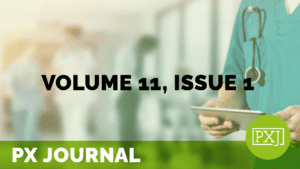 Culture & Leadership
Culture & LeadershipLooking Back to Move Forward: The Next Decade and Beyond for Human Experience
This issue comes out at an important moment for the experience conversation. It was ten years ago from the publication date of this issue on April 30, 2014, that the first issue of Patient Experience Journal (PXJ) was released. PXJ was intended to be a gathering place. A virtual town square for the experience movement where
Learn more -
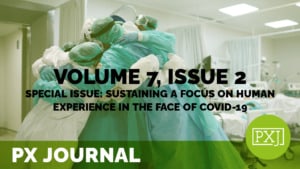 Patient Family & Community Engagement
Patient Family & Community EngagementMaintaining a positive patient experience during COVID-19 in a rehabilitation and complex care setting
Learn more -
 Culture & Leadership
Culture & LeadershipMaintaining public health insurance benefits: How primary care clinics help keep low-income patients insured
Learn more -
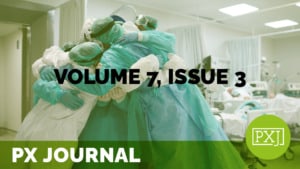 Innovation & Technology
Innovation & TechnologyManagement of frequent ED users by community paramedics improves patient experiences and reduces EMS utilization
Learn more -
 Culture & Leadership
Culture & LeadershipManaging patient expectations at emergency department triage
Learn more -
 Culture & Leadership
Culture & LeadershipMeaningful and effective patient engagement: What matters most to stakeholders
Learn more -
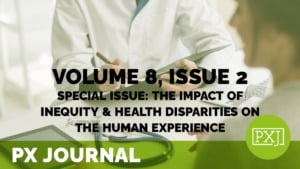 Policy & Measurement
Policy & MeasurementMeasuring cancer care experiences of Aboriginal and Torres Strait Islander people in Australia: Trial of a new approach that privileges patient voices
This study examined a new method for measuring the care experiences of Aboriginal and Torres Strait Islander people with cancer: the Indigenous People’s Experiences of Cancer Care Survey (IPECCS). The study assessed IPECCS’s: 1) performance; 2) ability to elicit information useful for service improvements; and 3) implementation potential. Three participant groups were recruited from five
Learn more -
 Culture & Leadership
Culture & LeadershipMeasuring patient experience in a safety net setting: Lessons learned
Learn more -
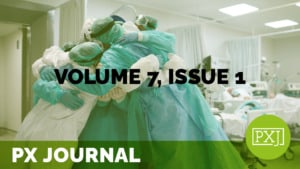 Policy & Measurement
Policy & MeasurementMeasuring patient-centered care for specific populations: A necessity for improvement
Learn more -
 Policy & Measurement
Policy & MeasurementMeasuring what matters: A proposal for reframing how we evaluate and improve experience in healthcare
The conversation on measuring experience has been a long and thoughtful one. It has reflected a dynamic tension between measures used as a lever for action in some health systems and as a mechanism to determine reimbursable dollars in others. Yet underlying all the conversation, the question of what we measure, to what end we
Learn more -
 Patient Family & Community Engagement
Patient Family & Community EngagementMicro-volunteering at scale can help health systems respond to emergencies, such as the Covid-19 pandemic
Learn more -
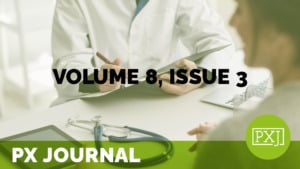 Patient Family & Community Engagement
Patient Family & Community EngagementMotivations, experiences, and aspirations in patient engagement of people living with metastatic cancer
The objective of this patient-led study was to explore the motivations, experiences, and aspirations of people living with metastatic cancer who volunteer in patient engagement. This qualitative study filled a gap in lived experience research about patient engagement by focusing on an oft ignored population – those living with metastatic cancer. We used a patient-oriented
Learn more -
 Culture & Leadership
Culture & LeadershipMoving forward to the future of healthcare
Learn more -
 Culture & Leadership
Culture & LeadershipMoving from talk to action: A commitment to ensuring equity must ground our efforts to transform the human experience
When we first introduced the call for submissions for this special issue last August, we were still churning in the first wave of the COVID pandemic. Just three to four months from the start of an unending rash of unexpected and harsh realities that we were faced with in healthcare and in society at large,
Learn more -
 Patient Family & Community Engagement
Patient Family & Community EngagementMy Life, My Story and Life Recovery among Veterans with Substance Use Problems
The United States Veterans Health Administration My Life, My Story (MLMS) program is a patient-centered care intervention where veterans are interviewed about their life story and may grant permission to include it in their electronic health record (EHR). Our purpose was to focus on a sample of MLMS narratives from veterans with self-disclosed substance use
Learn more